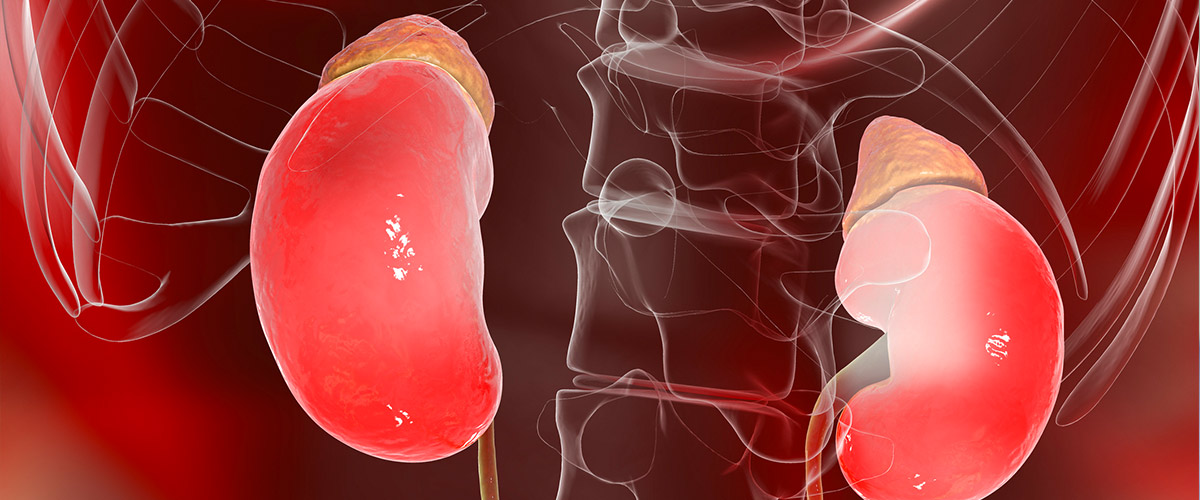Kidneys: the original self-cleaning system

Every day, the kidneys filter about 120 to 150 quarts of blood to produce about 1 to 2 quarts of urine, composed of wastes and extra fluid. This natural flushing helps to keep levels of electrolytes stable, such as sodium, potassium, and phosphate.The kidneys make red blood cells and also make hormones that help to regulate blood pressure, and help bones stay strong. Unfortunately, there are times when one or both of the kidneys may not be up to the task.
Common signs of early-stage kidney problems can include:
- puffy eyes, hands, and feet (edema);
- high blood pressure, fatigue, shortness of breath;
- weight loss;
- a yellowish-brown tint to the skin; and
- urine that is cloudy or tea-colored.
Common causes of chronic kidney disease (CKD) are diabetes and hypertension or a family history of kidney failure. That is why control of diabetes and high blood pressure are the most important things to do to prevent or slow the development of kidney disease. If kidney disease gets worse, wastes can build to dangerously high levels in the blood. Complications such as high blood pressure, anemia, weak bones, nerve damage, and heart and blood vessel disease could occur.
Early detection is key
There are several different forms of kidney disease, and patients should seek medical attention whenever symptoms are persistent, such as if the kidney suddenly worsens, if there is protein or blood in the urine, if blood pressure cannot be controlled by two blood pressure medications, or if the patient has kidney stones. In situations like these, immediate consultation with a nephrologist is in order.
If kidney disease progresses, it could lead to kidney failure and require dialysis or a kidney transplant to maintain life. Dialysis artificially removes waste products and extra fluid from the blood; in a kidney transplant, a healthy donor kidney is surgically implanted into the body, and anti-rejection drugs are necessary for the rest of the patient’s life.
Early detection can help prevent the progression of kidney disease to kidney failure. If a kidney stone is suspected, you should see a nephrologist to do a 24-hour urine study to determine what kind of kidney stone you have and determine the treatment. Most people with kidney stones are able to pass them on their own within 48 hours. If a kidney stone is too big to pass, a urologist may need to remove the blockage. Prolonged blockage as a result of the kidney stone can cause permanent damage to the kidney and lead to chronic kidney disease.
Adopt a kidney-healthy lifestyle
There are currently 26 million American adults living with CKD, and millions of others are at increased risk. There are things you can do to help lower your risk of developing CKD or kidney stones through dietary changes and exercise:
- Eat a diet low in fat, salt, and animal protein.
- Eat foods rich in oxalate: including fruits and vegetables, nuts and seeds, grains, legumes, chocolate, and tea.
- Drink plenty of water throughout the day. This is the best way to help prevent most types of kidney stones. Health care providers recommend that a person drink two to three liters of fluid a day.
- Engage in at least 30 minutes of moderate aerobic activity most days of the week.
- Avoid tobacco usage.
- Limit alcohol consumption.
To learn more about kidney care at NewYork-Presbyterian or to find a nephrologist, call 877-697-9355.



